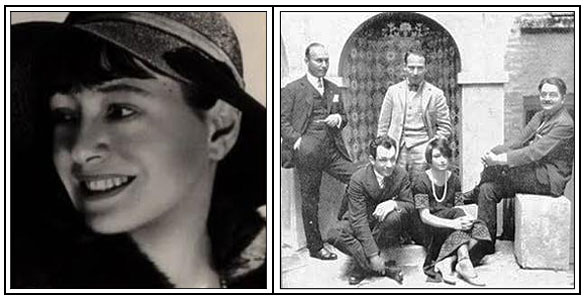Dorothy Parker
Dorothy Parker (1893-1967) was an American poet, short story writer, critic and satirist. Parker's caustic wit was her success and her downfall. In 1920 she was terminated by Vanity Fair, owed to offending powerful producers too often. Impatient with success, Parker's literary career when on from serving on The New Yorker's editorial staff to 'salting' the poetic publishing world with 'Enough Rope' (1926, dismissed by the New York Times as "flapper verse"), 'Sunset Gun' (1928) and Death and Taxes (1931). Her best-known short story, 'Big Blonde' (1929) was awarded the O. Henry Award. Parker's short stories were known for being witty and more bittersweet than comic. With aspirations to become a screenwriter, Parker, with new husband actor Alan Campbell, moved to Hollywood to work with Paramount Pictures. Parker typically earned $1,000 per week and in some instances $5,000 per week as a freelancer. She and Campbell wrote the script for the film 'A Star is Born' (1937) and support dialog for 'The Little Foxes' (1941). During the 1930s and 1940s, Parker became a vocal advocate of civil rights causes and a frequent critic of those in authority. Parker helped to found the Hollywood Anti-Nazi League (suspected by the FBI of being a Communist Party front). In 1950 Parker was listed as a Communist by the publication 'Red Channels' and placed on Hollywood's notorious 'Blacklist'. Parker and Campbell divorced in 1947 and remarried in 1950. From 1952 to 1962 Parker wrote book reviews for Esquire magazine, which later became erratic owing to alcohol abuse. Campbell committed suicide by drug overdose in 1963. Parker died on June 7, 1967 of a heart attack (age 73). She bequeathed her estate to the Dr.Martin Luther King, Jr. foundation. After King's death, her estate was passed on to the NAACP. z
|
